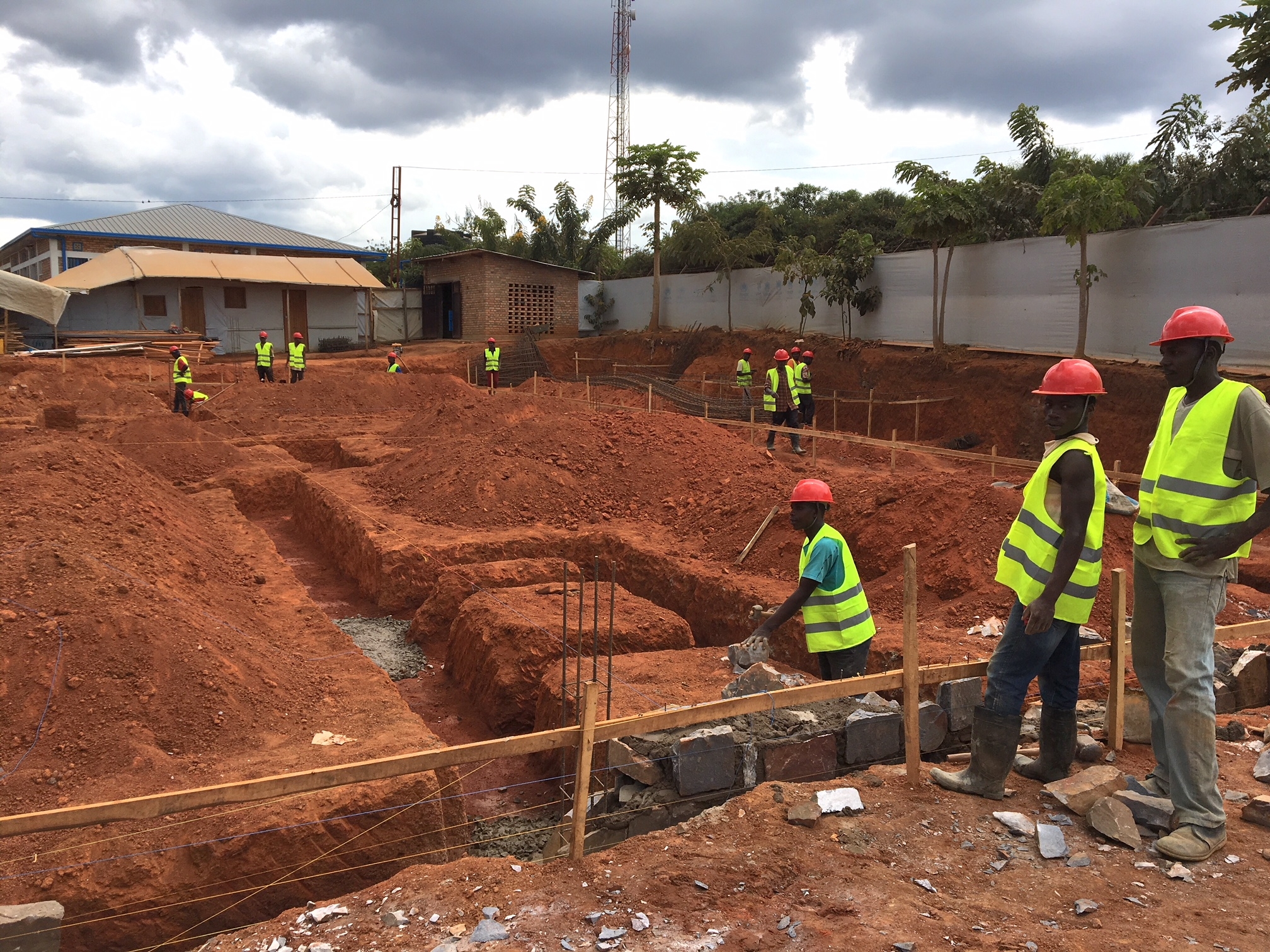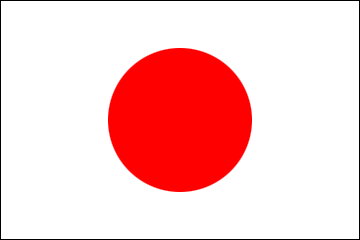Completion Ceremony of Projects for Supporting Burundian Refugees in Mahama Refugee Camp (UNFPA, UNHCR) (November 21, 2018)
2018/11/21
On November 21, Ambassador Miyashita attended the joint completion ceremony of Japan’s two grant projects in partnership with UNFPA and UNHCR, held at Mahama refugee camp in Kirehe District. UNFPA’s project is “Assisting and empowering Burundian refugee women, adolescents and youth through life-saving sexual and reproductive health care, and livelihood opportunities towards resilience building and human security,” and UNHCR’s project “Protection and Assistance to Burundian Refugees in Rwanda”. Both projects provide support for Burundian refugees in Mahama camp, with Japan’s contribution of JPY 33 million (USD 300,000) to UNFPA, and JPY 220 million (USD 2 million) to UNHCR.
Firstly Ambassador Miyashita visited “Women Safe Space” newly constructed by UNFPA and American Refugee Committee (ARC), a partner NGO, and toured a counseling room, medical examination room, and a room for advocacy activities. The space serves to care for survivors of sexual and gender based violence (SGBV), support young mothers, and facilitate advocacy activities for communities.
Firstly Ambassador Miyashita visited “Women Safe Space” newly constructed by UNFPA and American Refugee Committee (ARC), a partner NGO, and toured a counseling room, medical examination room, and a room for advocacy activities. The space serves to care for survivors of sexual and gender based violence (SGBV), support young mothers, and facilitate advocacy activities for communities.
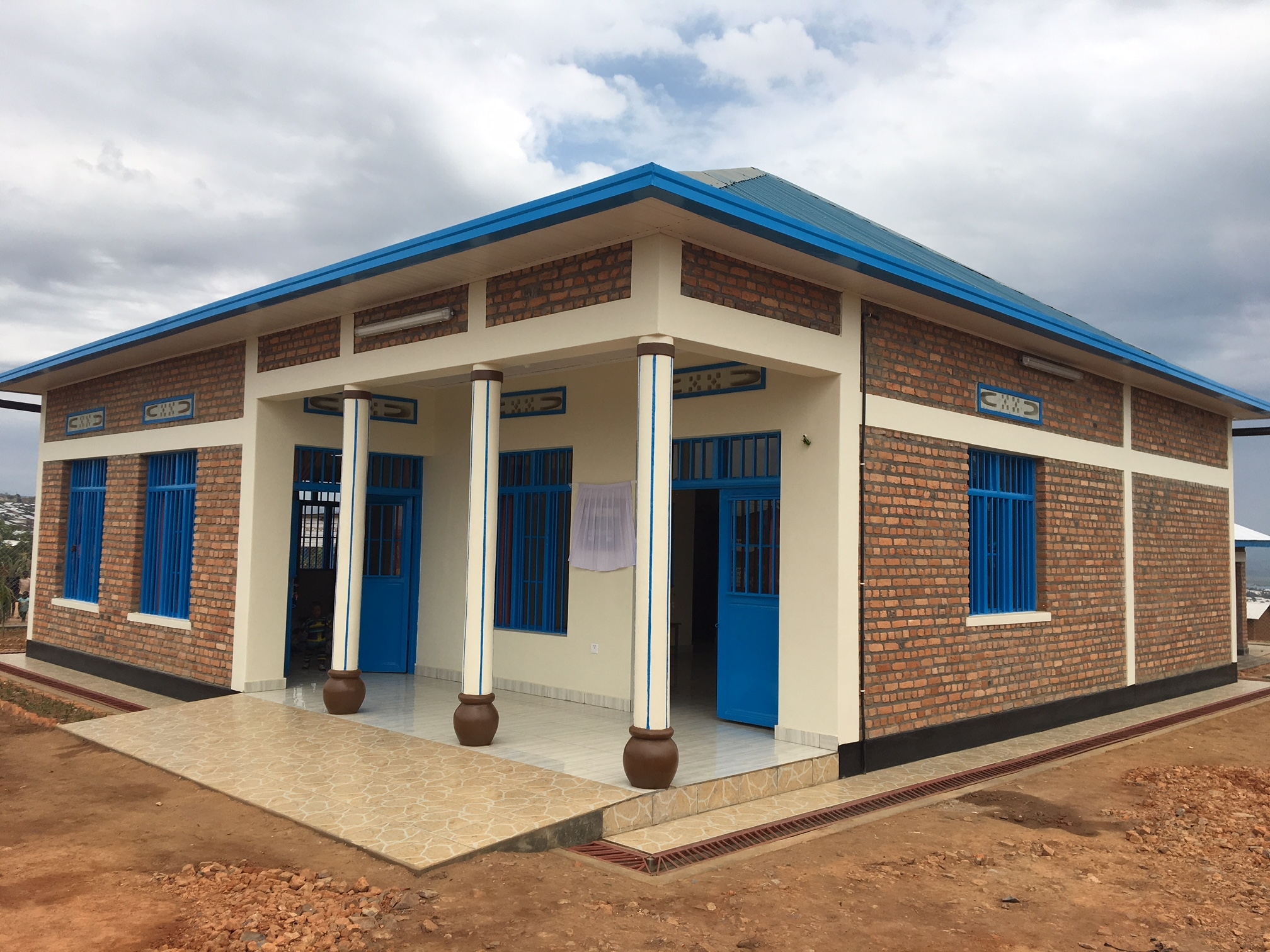
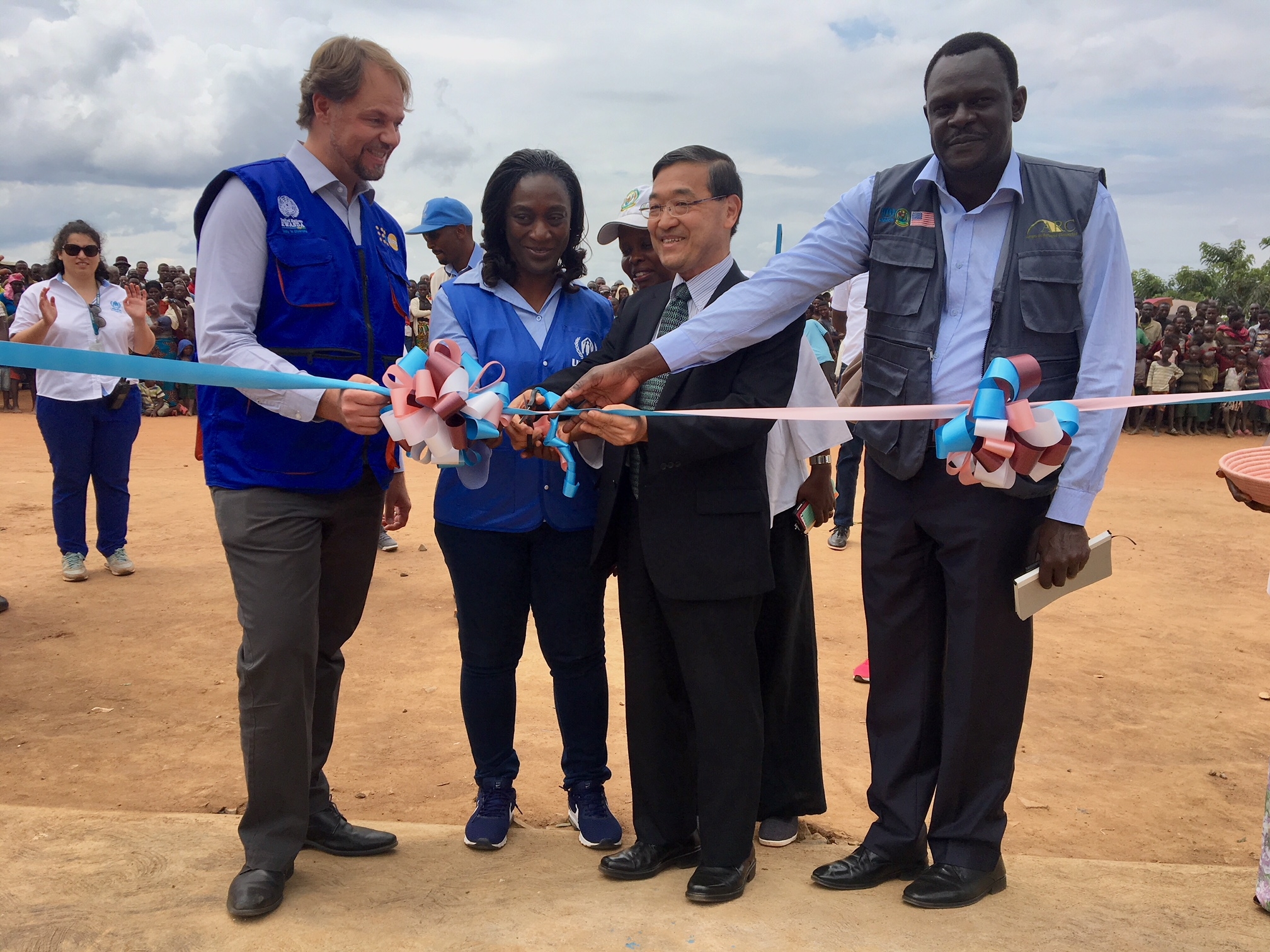
Secondly, Ambassador Miyashita saw livelihood support activities by UNHCR. Under this project, refugee women make clothes, bags and baskets, and gain income by selling them both in and outside the camp. UNHCR also provides legal assistance to refugees, including marriage registration support and issuance of marriage certifications. He attended a joint civil wedding ceremony, and handed certifications to newly wedded refugee couples.
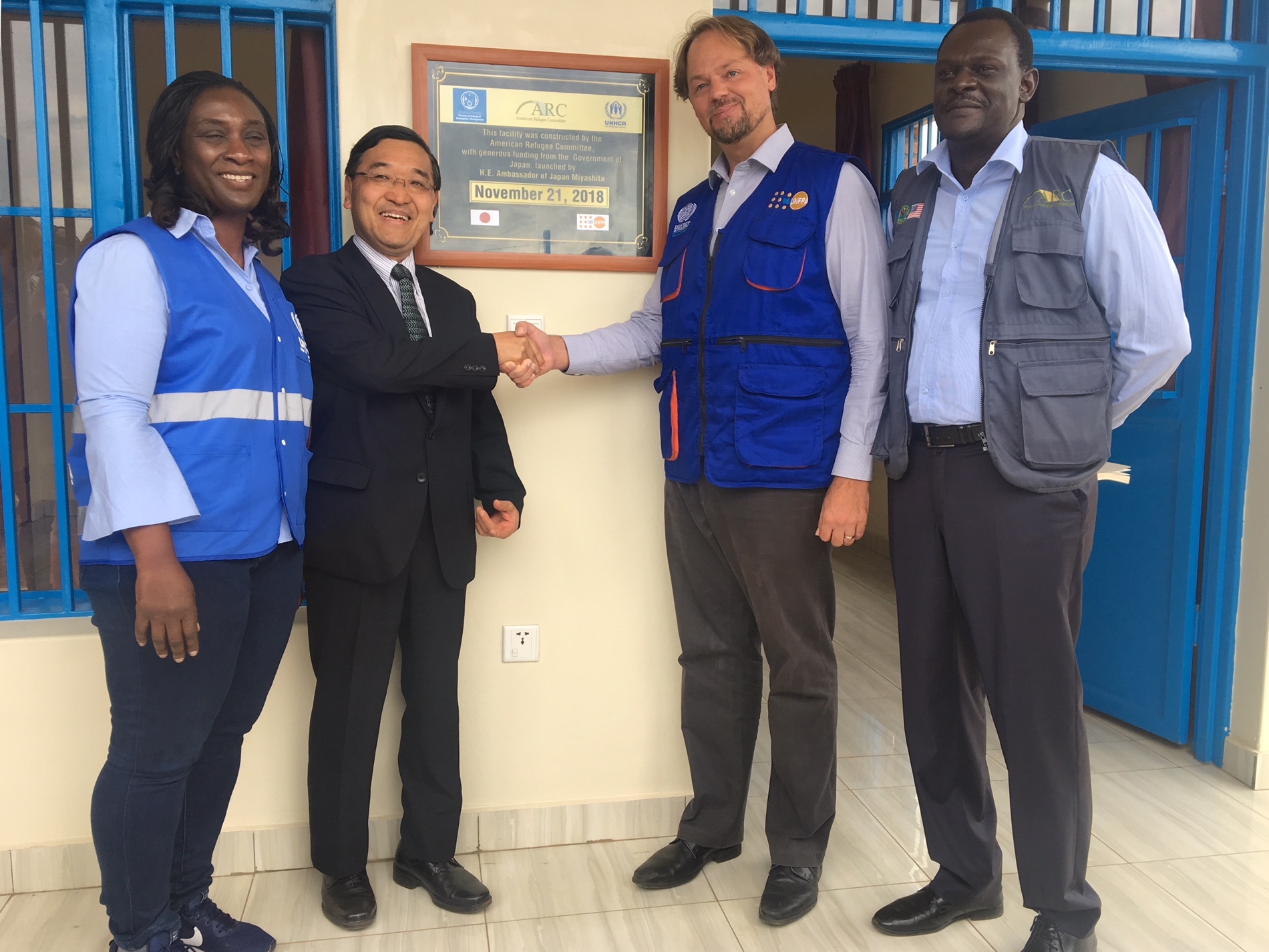
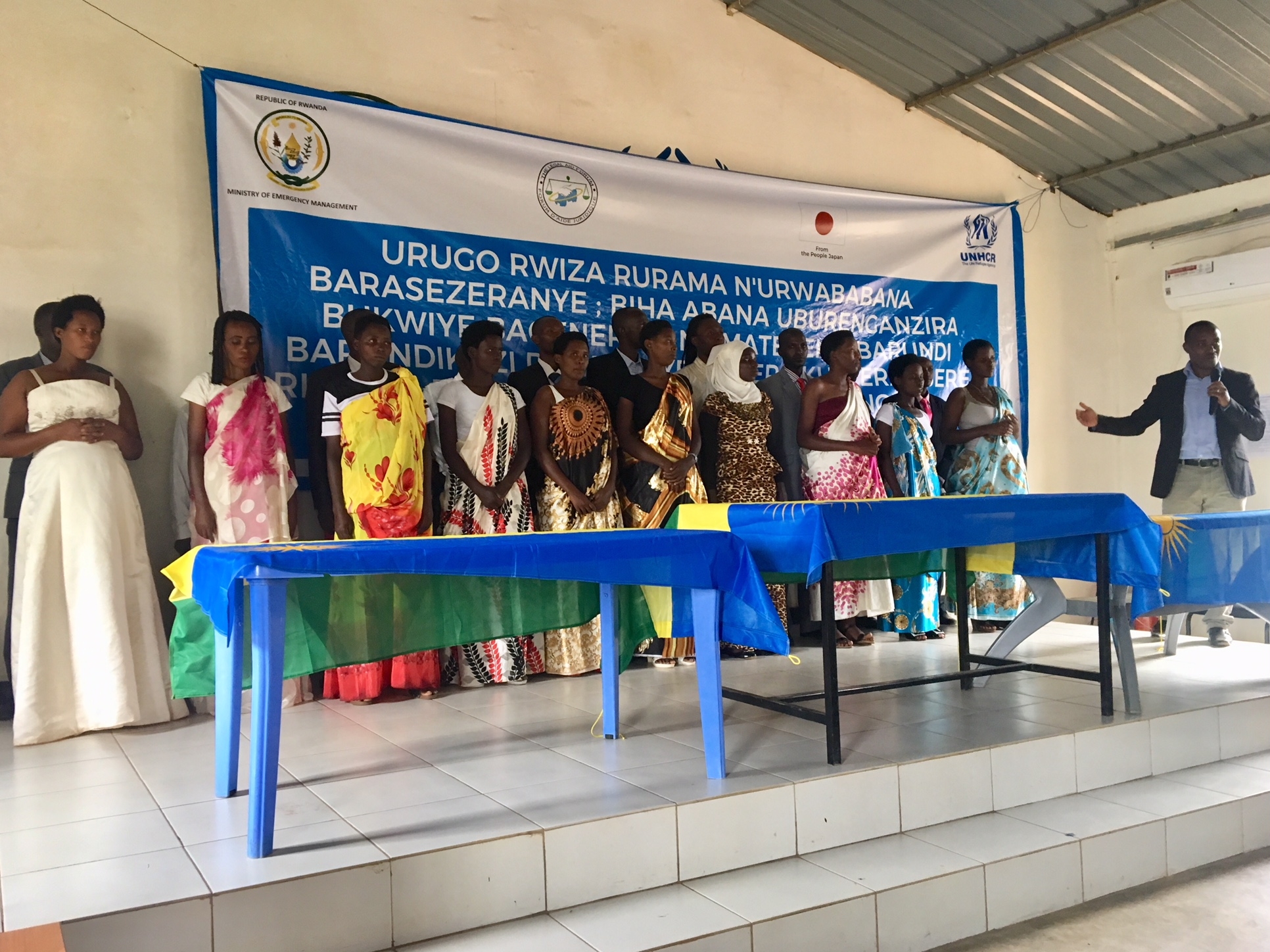
Mr. Schreiner, Representative of UNFPA Rwanda, said “we are very grateful for Japan’s support, which enabled us to work on issues in the camp such as maternal health, reproductive and sexual health, and prevention and care of SGBV. The project has achieved great results on these areas. For example, the ambulance purchased in May this year with Japan’s funding has been playing a critical role, which so far transported 432 cases.”
Ms. Dotse, Deputy Representative of UNHCR Rwanda, noted “UNHCR’s project provides a variety of supports including legal assistance, reduction of SGBV, health, and livelihood activities, all of them being crucial for refugees’ lives in the camp. We sincerely appreciate Japan’s continuous support. ”
Ambassador Miyashita said in his speech, “it is a honor for the Government of Japan to be a part of support for Burundian refugees in Rwanda. Prevention and care of SGBV and support for young mothers are important for entire communities, and I’m very glad to hear that the ambulance has been contributing greatly. Also, UNHCR’s wide range of supports are collectively improving refugees’ lives. The Government of Japan would like to continue supporting refugees in Rwanda. ”
Ms. Dotse, Deputy Representative of UNHCR Rwanda, noted “UNHCR’s project provides a variety of supports including legal assistance, reduction of SGBV, health, and livelihood activities, all of them being crucial for refugees’ lives in the camp. We sincerely appreciate Japan’s continuous support. ”
Ambassador Miyashita said in his speech, “it is a honor for the Government of Japan to be a part of support for Burundian refugees in Rwanda. Prevention and care of SGBV and support for young mothers are important for entire communities, and I’m very glad to hear that the ambulance has been contributing greatly. Also, UNHCR’s wide range of supports are collectively improving refugees’ lives. The Government of Japan would like to continue supporting refugees in Rwanda. ”
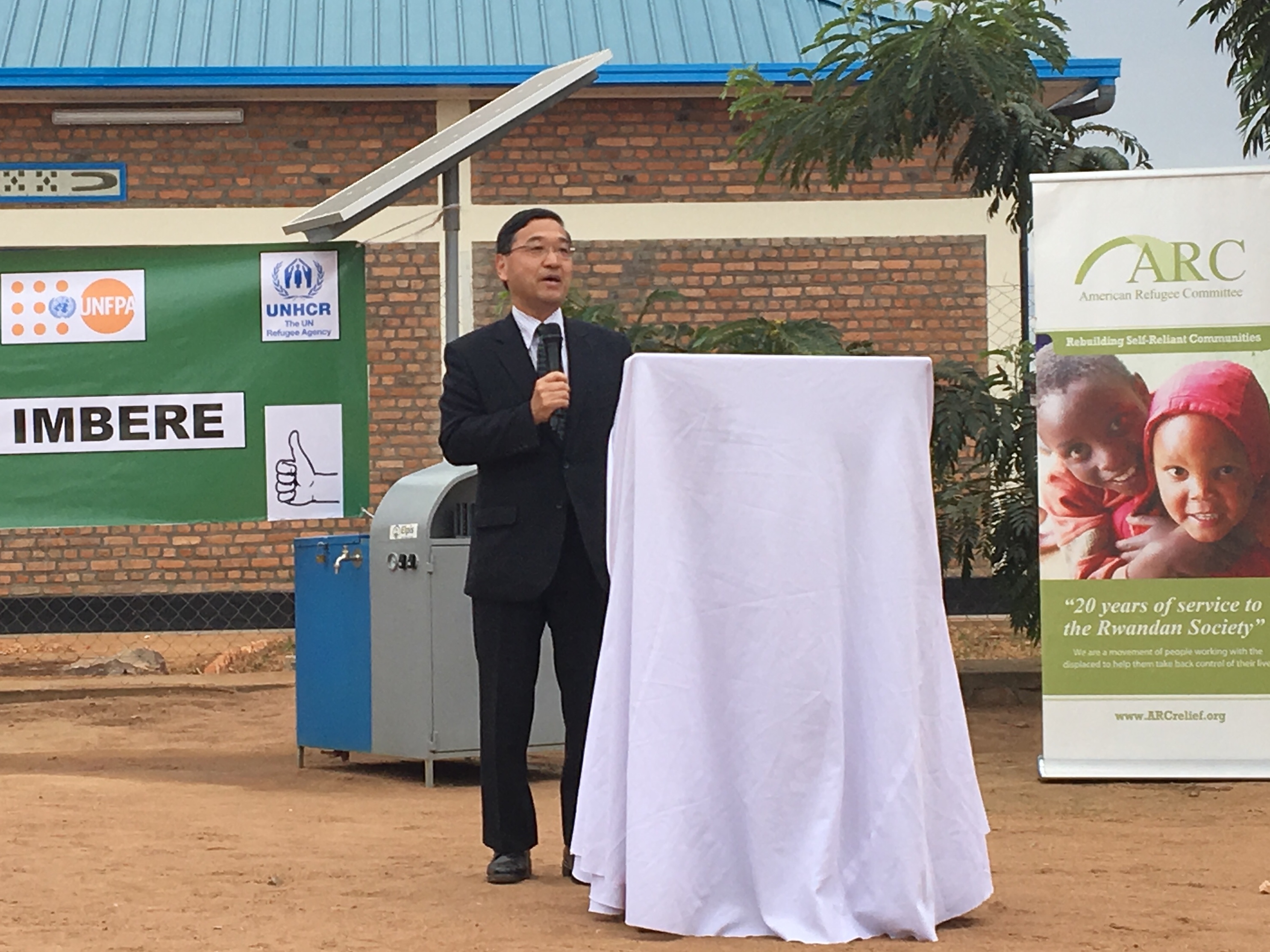
Finally, Ambassador Miyashita attended a groundbreaking ceremony of a maternity ward in the camp, to be constructed by UNFPA and ARC. Once the facility is constructed, various medical equipment purchased by Japan’s funding will be used.
